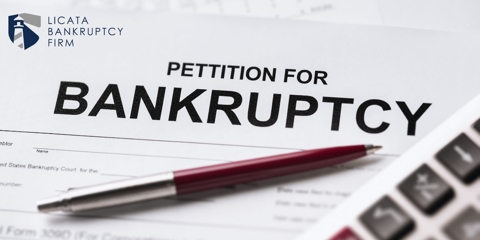Divorce Debt Attorney in Springfield
Divorce is one of the leading causes of bankruptcy. Often debt problems are part of the stresses leading to divorce and bankruptcy. The main issues to be addressed in a divorce are:
While bankruptcy does not help you decide who gets the kids and the property, it can help ease issues over who gets the debt. If a couple files a joint bankruptcy before their divorce is final, they can eliminate the issue of dividing debt that is discharged in bankruptcy.
However, many factors should be considered when determining the best course of action when contemplating divorce and bankruptcy. For example, your income and liability on debts may affect the timing of your bankruptcy and the chapter of bankruptcy you file.
Likewise, the language in the proposed divorce decree and marital settlement agreement should be carefully reviewed by an experienced bankruptcy attorney to determine your best options in a bankruptcy case.
If a couple does not agree to file a joint bankruptcy, and it does require some cooperation, then care should be taken by the party deciding to file bankruptcy by him or herself. While a joint bankruptcy before a divorce is usually the best option, there are some circumstances when an individual bankruptcy may be preferable.
Who Is Responsible for Marital Debt After Divorce?
The need for bankruptcy can sometimes be better assessed after the divorce is final. Keep in mind that if you are liable for a debt, your problems are not over if the divorce court orders your ex-spouse to pay that debt.
There is a common misconception that the division of debt in a divorce decree changes who a creditor may pursue when a debt is not paid. However, a creditor can still pursue both parties on a joint debt, regardless of who was assigned the debt in the divorce.
If your former spouse does not pay the debt, the creditor can then collect against you, and you cannot use the divorce court's order to defend against that collection as you are in fact still liable for the debt.
The divorce court's order to pay alimony or child support can never be eliminated by bankruptcy. However, joint debts divided between the parties can be eliminated if evaluated appropriately by an attorney who is familiar with both Chapter 7 bankruptcy and Chapter 13 bankruptcy.
It is important to hire an attorney who handles both chapters because the language in a divorce decree can impact the ability of certain debts to be discharged in Chapter 7 and Chapter 13 cases.
This is one of the reasons why the decision to consult with a bankruptcy attorney prior to your divorce being finalized is in your best interests if there are joint debts from the marriage.
If you are talking to a divorce attorney while contemplating divorce, you should also consider talking to a bankruptcy attorney to consider whether a bankruptcy before or after the divorce will be the most beneficial. Additionally, if you hire a bankruptcy attorney and divorce lawyer, they can work together to get the best result for you to eliminate debt.








